Friday Fun! Mortgage FAQ + Quiz

We are fast approaching the end of the second month of the year. Where does the time go? Winter is in the final stages, and the spring buying market is just around the corner, hopefully.
I thought I’d take this time and use this newsletter to have some fun. Ok, fun for me. And do some FAQ and True or False questions. Let’s see how you do.
If you have questions you would like answered, give me a call, text or email.
Here are some of the questions I receive most frequently.
True or False: Only first-time can use a 5% down payment?
False – Anyone who qualifies for a 5% down payment can utilize this option. In some cases, I even suggest using a 5% down payment instead of a higher amount.
Follow-up Question: Why would I recommend only using 5% instead of a higher down payment amount? If you are taking funds from high-earning investments, I would only take out what was needed. With mortgage rates so low – why would you take funds out of high-earning assets to put on a less than 2% debt?
Besides, if renovations are in the near future, keeping cash available to pay for the renovations is far more practical than financing later on with credit.
True or False: Only first-time buyers can access the Home Buyers Plan- HBP.
False – there are provisions to access your RSP buyers plan if you have been separated/divorced, disabled, or enough time has passed. Before you can access the new RSP HBP funds, your previous HBP loan would have to be repaid.
Ultimately, your lawyer will determine if you are eligible or not.
True – For Land Transfer Tax purposes, only “actual” first-time homebuyers receive this credit. How much, you ask?`Up to $4000.00 per house or $2000.00 per person. If one or both of the parties have owned a home previously or lived in a matrimonial home, they will not be eligible for an LTT credit.
Your lawyer will determine if you are eligible or not.
True or False: all rates are created equal?
False – here’s a quick breakdown in order of lowest to not the lowest
- Mortgage renewals – typically, renewals receive the very lowest rates
- 5-19.9% – purchases – or default insured mortgages receive the best rates as they are considered low risk; hence the default insurance
- 20% —35% great rates but higher than the default insured mortgages
- 35% or greater – down payment or equity for transfer of a mortgage can receive the lower default insurable rate, but only through a monoline lender and broker. 🙂
- 80% or great refinance rates can be a little higher than the purchase rates
- Rental purchase can also have higher rates
- Files with imperfect credit may receive harsher rates and possible lender and broker fees.
Follow-up facts:
Rates are based on few things, credit scores, ratios, down payment, timing and income type. Some incomes will trigger a higher rate, stated income for example.
Some of the ultra-low rates can have restrictive clauses in the contract, be aware of what you sign.
Let’s do one more!!
True or False: I’m pre-approved; I don’t need a financing clause.
False – Your pre-approval is about you; you are prequalified, the property you are purchasing has not been qualified or approved. The home’s value can only be determined once an appraisal has been completed or the default insurer has auto-approved the value.
True – ok in this purchasing environment, no one has a financing clause; there aren’t any clauses for that matter in the purchase agreement if you want to win.
See, that was fun. You may have more questions, but these questions are frequently asked or misunderstood. If you have a question call me. I’m happy to help.
Things You Should Know About Mortgages
As we get ready for spring and house shopping, let’s take a closer at the working parts of a mortgage application.
Having a good credit score will allow you to access better rates and terms for credit cards, mortgages and loans.
Credit scores in Canada average between 300 and 900. The average Canadian credit score is 750.
Canadian credit is based on:
- 35% the record of timely payments
- 30% the ratio of outstanding debt (limit to balance)
- 15% the length of credit history –
- 10% the number of open accounts
- 10% the mix of credit accounts, credit cards, department stores, finance companies, bank loans, etc.
Note: Canadian lenders require a minimum of two accounts, with two years of history in good standing. Strong repayment is essential.
Note: No credit is the same as bad credit as there is no history. If you’re looking to invest in a property, you must first build a healthy credit history.
Income: There are so many types of income
Salary – guaranteed income does not change often.
Salary plus commission and/or bonus – typically, you will need a two-year income average confirmed by your NOA Notice of Assessment from CRA
Hourly – typically you will need a two-year income average confirmed by your NOA Notice of Assessment from CRA
Commission – Sales typically, you will need a two-year income average confirmed by your NOA Notice of Assessment from CRA.
Self-Employed – typically you will need a two-year income average confirmed by your NOA Notice of Assessment from CRA plus your T1Generals
Contractor – which is self-employed but they work on contract typically year to year – typically you will need a two-year income average confirmed by your NOA Notice of Assessment from CRA.
Pre-Approval
Pre-approvals are qualified on the stress test. The stress-test rate is 4.79%; this is not the rate you pay; it’s the rate that ensures you can continue to afford your mortgage payments even in a rate-rising environment.
Your pre-approval can also guarantee an interest rate for a period of time, typically 90 days.
Down Payment
The minimum down payment is 5%, except when you are purchasing $1,000,000.00+or a rental property, you must have a 20% down payment.
When possible, a 20% down payment will allow you to save on the CMHC fee.
On average, Canadians need anywhere between 1.5 to 2.5% of their home purchase price to cover land transfer taxes, PST on CMHC premium, home inspection fees, legal fees, appraisal fees, property tax, property insurance, fire insurance, utility hook-ups, and so much more.
Note: Purchasing a property in Toronto and other large cities should expect to pay even more as land transfer and municipality property taxes are added to the cost of closing.
Canadians have options – let’s look at the most popular choices.
Fixed Mortgage Rate – works with the bond market
74% of Canadians currently have a fixed mortgage. A fixed-rate is just that; it’s a rate that is set for a specific period of time. The most popular fixed rate term is five-years.
Variable Mortgage Rate
25% of Canadian’s use a variable mortgage. The variable or adjustable-rate mortgage works with the Bank of Canada. It should be described as Prime – which is the overnight lending rate + 2% minus/plus the discount or premium.
For example: On February 23, 21, the Prime rate is 2.45%, and the discount for a high ratio mortgage or a purchase with less than 20% down payment is 1.00%, so that net rate would be 2.45% -1.00% = a net rate of 1.45%. When prime moves, your interest rate and payment move. The Bank of Canada meets several times a year to determine if there will be an increase, decrease or hold to the overnight lending rate. Typical movements are 0.25%. It should be noted that 0.25% is equal to $12.30 on $100,000.00. What does this mean? Let’s say you have an adjustable or variable rate mortgage with a balance of $300,000.00. If there was an increase or decrease to prime of 0.25%, your payment would change by $36.90 per month.
Mortgage Payment Options
You have options.
There are many options when paying your mortgage.
You can pay your mortgage monthly, twice a month on the 15th and 30th, every two weeks, or every week.
You can pay bi-weekly or weekly regular, or accelerated.
What does it mean to accelerate your payments? When you pay the mortgage with an accelerated bi-weekly payment, you are shaving 2.5 years off the life of your mortgage.
Mortgage Repayment period of AKA the Amortization period
The longer the amortization, the smaller the payment.
The larger your payment, the shorter the amortization.
Taking advantage of your pre-payment options and annual payment increases will also decrease your amortization.
Mortgage Term – the length of the contract
A mortgage term is the period of time you are “locked-in” to your mortgage contract and rate. This period can be as brief as six months or as long as ten years. Once the term comes to an end, you can renegotiate the next mortgage term and re-evaluate your financial plan. You may even consider changing to a new lender without a penalty.
Mortgage Types:
Open Mortgages –
Con = more expensive — Pro = no penalty
An open mortgage allows Canadians to pay off their mortgage without penalty. Open mortgages allow for renegotiation of the mortgage at any time. Open mortgages come at a higher rate; increased flexibility comes at a price. I typically recommend open mortgages when a client expects a large sum of money or has a short-term mortgage repayment plan.
Closed Mortgages
Con = penalty — Pro = lower rate
Closed mortgages have lower interest rates in exchange for a guaranteed contract to the lender. If you were to terminate the mortgage before the end of the term, you would have a penalty based on IRD, interest rate differential. Let’s just say it’s not cheap, but if you utilize your pre-payment options, you could still pay the mortgage down or be mortgage-free in a short period of time.
